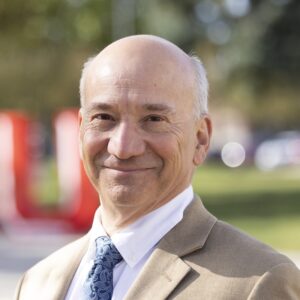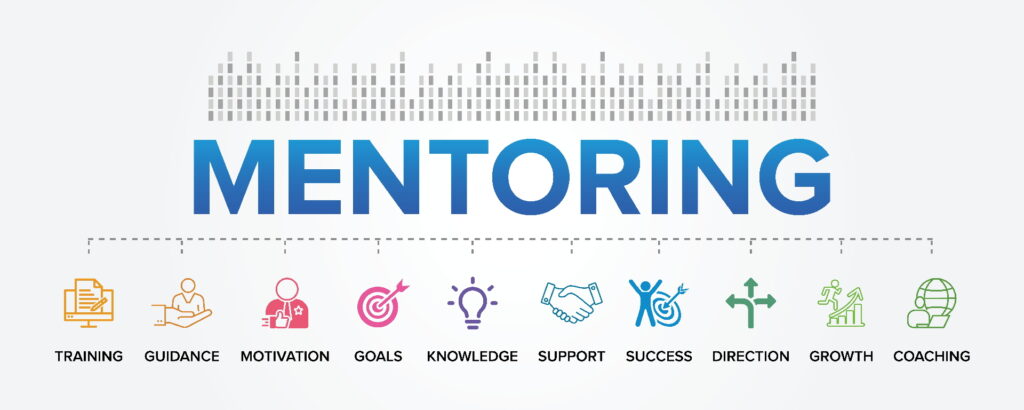Challenges for an Academic Dean
A Conversation with Dean Paul Kassel
Academic deans play a critical role in higher education institutions, balancing administrative duties, faculty leadership, student engagement, and institutional strategy. In this Blog, we have conversations with Dean Paul Kassel about some of the key challenges an academic dean faces.
 Dean Kassel is finishing his ninth year as dean of the College of Visual and Performing Arts (CVPA) at NIU. In that time, Dean Kassel and his colleagues have seen enrollment growth, diversification of faculty and students, increases in financial resources, development of innovative programs and partnerships, and a growing impact on the arts in the region. They have established ties with institutes such as Argonne National Laboratories, partnerships with the City of DeKalb and Chicago, engaged a broad array of professional associations and industries, and have participated in critical discussions about their programs at both the state and national levels. Dean Kassel’s background is somewhat unusual and varied but has provided him with a unique perspective when taking on the tasks of academic administration. His mission as an artist, teacher, and as an administrator is to bring talented people together and help them flourish—in their teaching, research, artistry and service.
Dean Kassel is finishing his ninth year as dean of the College of Visual and Performing Arts (CVPA) at NIU. In that time, Dean Kassel and his colleagues have seen enrollment growth, diversification of faculty and students, increases in financial resources, development of innovative programs and partnerships, and a growing impact on the arts in the region. They have established ties with institutes such as Argonne National Laboratories, partnerships with the City of DeKalb and Chicago, engaged a broad array of professional associations and industries, and have participated in critical discussions about their programs at both the state and national levels. Dean Kassel’s background is somewhat unusual and varied but has provided him with a unique perspective when taking on the tasks of academic administration. His mission as an artist, teacher, and as an administrator is to bring talented people together and help them flourish—in their teaching, research, artistry and service.
Question 1: What are your key responsibilities as an academic dean?
Comments: CVPA is comprised of three Schools—Art and Design, Music, and Theatre and Dance—as well as the NIU Museum and the Community School of the Arts. The college offers professional and liberal arts undergraduate and graduate programs enrolling over 950 students, with +100 faculty; annual operating budget of over $11.3 million dollars; 129 foundation endowment and expendable accounts totaling over $8.5 million.
Question 2: What are your key challenges as an academic dean?
 Comments: Strategy and negotiation. I spend most of my time devising and implementing strategies to fulfill the mission, vision and values of the university and college. Much of that revolves around securing and deploying resources—human, temporal, and fiscal. In order to implement that strategy, I am constantly negotiating with my supervisors (Provost, President, various VPs), my team (direct reports—school directors, finance director, communications and marketing director, director of Advancement, and my staff), with faculty, and of course students. I work every day to help match people’s goals and ambitions with the university and college mission, vision and values. Sometimes, that means helping people see that they are already doing that, and sometimes it means guiding people towards that alignment. The first step is often agreeing on the values—centering learners, and creating access and opportunity for that learning.
Comments: Strategy and negotiation. I spend most of my time devising and implementing strategies to fulfill the mission, vision and values of the university and college. Much of that revolves around securing and deploying resources—human, temporal, and fiscal. In order to implement that strategy, I am constantly negotiating with my supervisors (Provost, President, various VPs), my team (direct reports—school directors, finance director, communications and marketing director, director of Advancement, and my staff), with faculty, and of course students. I work every day to help match people’s goals and ambitions with the university and college mission, vision and values. Sometimes, that means helping people see that they are already doing that, and sometimes it means guiding people towards that alignment. The first step is often agreeing on the values—centering learners, and creating access and opportunity for that learning.
Question 3: What makes a great academic dean and successful dean of students?
Comments: A good dean manages resources effectively, delivering outcomes on time and within the budget. But a great dean leverages those resources to continually advance the interests of the university, and the faculty and staff so they are not only productive, but thrive as creative and scholarly people.
A good dean for students keeps things humming along, and in many ways is invisible to students. But a great dean champions the work of the students, is a vital and active presence on campus, and celebrates their achievements. A great dean helps students see that they are not only pursuing their own dreams, but helping others fulfill theirs, too. A great dean helps students see they are part of the whole and essential to what makes the university great, too.
Question 4: How much power does a dean have?
 Comments: The dean has RESPONSIBILITIES, not power. Or, if there is power, it is a soft kind of power—to persuade, cajole, guide, and sometimes warn. The dean has to shoulder the burden when time, money and people are short; but when things go well, must shift credit to the faculty, staff and students. At NIU, the college deans have collective power and work very well as a team. That’s been one of the great blessings working at NIU.
Comments: The dean has RESPONSIBILITIES, not power. Or, if there is power, it is a soft kind of power—to persuade, cajole, guide, and sometimes warn. The dean has to shoulder the burden when time, money and people are short; but when things go well, must shift credit to the faculty, staff and students. At NIU, the college deans have collective power and work very well as a team. That’s been one of the great blessings working at NIU.
Question 5: How hard is it to be an academic dean?
Comments: The difficulties are less so in the actual day-to-day tasks, but in having to make difficult choices about resource allocation, especially when those resources are scarce. But when they are scarce, the dean MUST cultivate a perspective of abundance, NOT scarcity. The fact is, most of us are very fortunate to do the work we are doing—learning, studying, creating, researching.
It took me a year to get to know the university culture. It took me two years to understand how that culture impacts decision-making. It took five years to build my dean’s staff team. It took seven years to complete my leadership team. It took patience, planning, luck, and the confidence and trust of my supervisors, which I cultivated with honesty, humility, and a fierce belief in the work of the faculty, staff and students.
Question 6: How important is it for an academic dean to have a mentor?
Comments: Essential. I am fortunate to have mentors both at the university where I worked (as I learned the ropes), but also with excellent and experienced colleagues across the nation. Associations can be very helpful, but personal relationship with an experienced and empathetic academic leader makes all the difference. My first mentor was a colleague with whom I went to graduate school but was a bit older and ahead of me on the career trajectory. My next mentor was a president, who helped me see myself as an administrator and helped me articulate a leadership philosophy. My current mentors are my fellow deans and colleagues across the nation. They all have been invaluable to me.

Question 7: Any additional Thoughts?
Comments: My personal mission as an artist, educator, and administrator is to facilitate the development of programs, colleagues, and students, and to serve as best as I am able the educational goals of the institution. Key values in decision-making for me are transparency, effective and consistent communication, fairness, respect, and trust. Whether in the classroom, lab, studio, or in the conference room, creating and sustaining trust is the single most important duty of a leader. As with respect, trust ought to be offered—but to sustain it, trust must be earned. Trust is earned by a deep and abiding commitment to the principles and practices that arise out of service to the mission. Finally, if all this can be achieved with grace and good humor, then the work environment is not only highly productive, but joyous. Generosity, forgiveness, tolerance, respect, and trust—these are the values upon which good leadership is founded, and by which great institutions are sustained.
Thank you, Paul.
